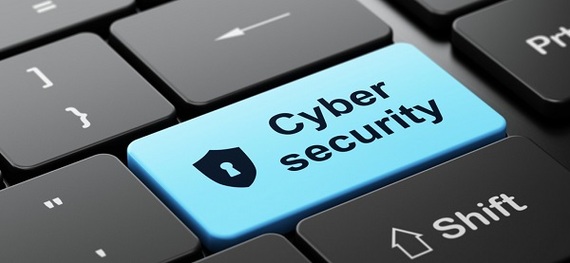The need for cyber security controls has not been as important as it is now. This is due to the constant cases of cyber-attacks and cyber-crimes that are perpetrated on a daily basis.
A lot of entrepreneurs have been at the receiving end of these malicious attacks and have lost valuable data, information, and resources in the process. No wonder, then, that many people, especially smart entrepreneurs, invest in cyber security a lot more these days.
Even if you are not an entrepreneur, cyber security controls are for you too. And below are five cyber security controls that will guarantee that your information and other resources are reasonably protected, thereby making you feel completely efficient and safe:
1.Install Firewalls on your computer systems
You must install firewalls and routers on your systems. This will prevent your system from external attacks. Firewalls are programmed to trigger off alarms whenever there is a potential breach of a computer system.
This notifies the user of the attack so as to do the needful to further prevent the breach of the system. This is similar to the functions that a security guard performs to ensure the security of the property that he is employed to guard.
Firewalls come in two forms which are software and hardware. You can use any one of the two to guarantee the security of your computer systems. Remember to always ensure that you turn firewalls on whenever you are using your system at home.
2.Don't Just Install Antivirus Software programs on your Systems; Scan them Regularly
The installation of antivirus software programs is one of the effective methods that will guarantee the security of your computer systems. Contrary to the general belief, antivirus programs are not designed exclusively for the prevention of virus attacks. They are also effective means of preventing attacks by Trojans, Keyloggers, and some other harmful programs.
Moreover, according to cyber-security experts HelpSystems, "Many people still believe viruses are a Windows problem...That's not true in today's connected environments. Viruses can hide inside Java and Unix files and your operating system can execute them. On IBM i, your integrated file system (IFS) can act as a host for viruses and malware. In short, the IBM i, AIX, and Linux operating systems are all vulnerable to viruses--no server is completely safe...
"You can avoid these issues with virus scanning software that runs natively on your system. Native scanning is stable and fast, and a program running natively on your operating system will use the appropriate scan attributes and settings without increasing your network load."
3.Use Anti-spy Software programs
There are some computer software programs that perform the functions of human spies. These programs steal information from computer systems without the consciousness and consent of the users. The pieces of information that they steal are used by others to harm the organizations or individuals that are using these systems.
To prevent spy software programs from carrying out this nefarious activity, it is imperative to install anti-spy software programs. The will act as the security agents that are monitoring a city or country, preventing spies from gaining access to such city or country.
4.Use complex passwords on your systems
This control measure is often overlooked and considered insignificant by many computer users. To gain access to files and information that are kept with passwords, hackers need to break down the passwords. The length and the complexity of a password will determine how easy or difficult it is for hackers to break down.
Complex and long passwords are more difficult to hack than short and simple passwords. For example, it is reported that it will take a couple of minutes to break a password that is just six words long, while it will take longer time to do the same for complex passwords.
It is therefore advisable that users should use passwords that are reasonable long and complex. To make sure that a password is complex enough, experts believe that it should contain letter, numbers, and special characters. This simply means that it will be more difficult to break down "#cybersecurity1970" than "cyber" if both of them are different passwords used on different systems.
5.Restrict access to confidential information
If a good number of individuals are working in an organization, it is advisable that access to confidential pieces of information should be restricted to authorized personnel only. Apart from confidential information, other computer resources like equipment, programs, and data should be made available to those who have the clearance to access them.
This will protect such resources from deliberate alteration, disclosure, and loss. Also, since these resources are accessible to a few people, it will be very easy to discover and detect any modification and the person that is responsible for the modification. This will prove effective in ensuring the integrity of data and other resources.
To ensure complete protection, some of the methods should be combined as no single method has been found to be effective in preventing cyber-crimes.
Stay Safe.

